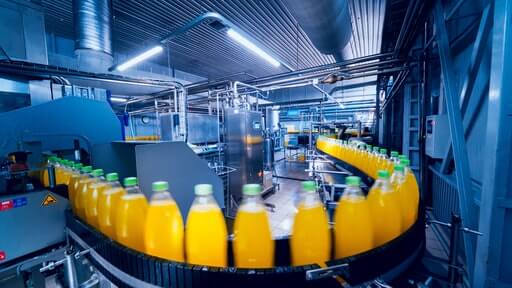It appears that you want to get into the ever-growing food manufacturing sector! Food is an essential item whose demand will only increase in the future.
However, because that is unlikely to happen anytime soon, you can happily establish your food processing company in India. Demand is high, development and diversification opportunities are plentiful, and the industry is profitable. You should be fine as long as you can create products that fulfill the appetites of the vast majority of people and a corporation that complies with government rules.
Business Concepts for Food Production in India
If we include every single possibility for food manufacturing enterprises, the list may be enormous. However, we’ll make it simple by mentioning the main points:
- Cereals, pulses, and beans processing.
- Dry fruits and nuts
- Ready to eat foods
- Snacks
- Baked Food
- Tinned Food
- Frozen Food
- Ready to cook packages
Everything from rice milling to frozen beef is covered.
Once you’ve selected what you’re going to make, you’ll need to complete the following seven steps to getting your company up and operating.
Before you start a food business, there are seven things you should do.
Remember the two elements you must meet to thrive in this industry, Your customers must be pleased and you should
Comply with legal regulations.
To meet these two needs, you must accomplish the following in addition to creating excellent items.
Choose a business structure.
The next stage is to establish a company that complies with the law’s requirements. You have the option of forming a private limited company, a partnership firm, or a limited liability partnership (LLP). These selections should be made based on the size of your manufacturing company and the style of management you require.
Once you’ve settled on the structure of your manufacturing company, you’ll need to register with the appropriate authorities.
Do some market research.
The days of large-scale production being enough to run a successful firm are long gone. Today, whether you succeed or fail is determined by the market and your clients.
Obtain an FSSAI license or registration.
According to the Food Safety and Standards Act of 2006 (FSS Act), all food vendors must register with the FSSAI.
Important registrations under the FSSAI include:
Basic registration: All small firms or startups with annual revenue of INR 12 lakh or more must complete this registration. If sales improve, the basic registration can be upgraded to a state license.
State FSSAI license: Companies with annual revenue of INR 12 to 20 crores must obtain a state license.
Large firms with an annual turnover of more than INR 20 crores are normally required to obtain a central FSSAI license. This is also required for food product delivery, import, and export to government offices for goods and services.
Submit a Trademark Application
Your company’s brand is extremely crucial. It is required to trademark it to protect it. As a business that relies significantly on repeat consumers, you must ensure that people can correctly recognize you in a crowded market.
Test your water and get a certificate for organic testing.
The most important factor is the quality of the things you sell. The water and substances you use should be of top quality if you want to manufacture high-grade items.
You can test the items with the help of food inspection labs and water testing facilities. Obtain quality certificates as needed and, if possible, establish customer trust. Chemical and microbiological contaminants must be avoided when producing refined sugar or juice tetra packs.
Check Your Nutritional Chart
In recent years, people have become more health-conscious. Are you aware that there are popular videos and courses available on how to read food ingredient labels?
As a result, a nutrition chart is required; a health-conscious customer will always check the nutritional information on food items. So, first, make sure you create a good product with healthy ingredients. Then make sure it’s prominently featured on your goods.
People will be able to observe for themselves that your product is beneficial to them.
The Organization’s Location
To save money on logistics, the production unit should be located outside of the city but close to resources. It should also be close to the location where you will be selling your goods.
You can begin manufacturing if all of these items are in order. All of the legal tasks may appear frightening, but don’t let that deter you. You can always contact GetMyCompany for any of these, as well as assistance with GST registration once your business is up and running.

